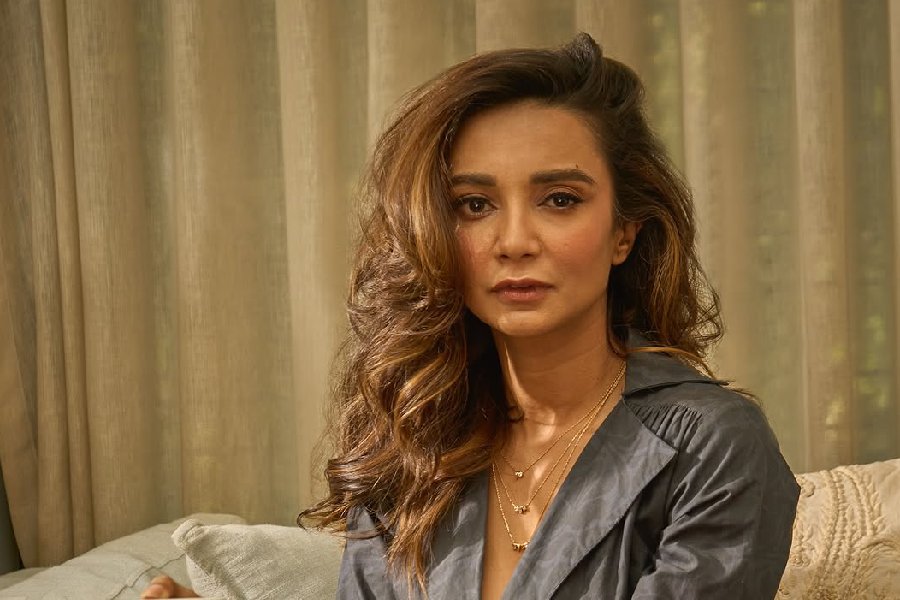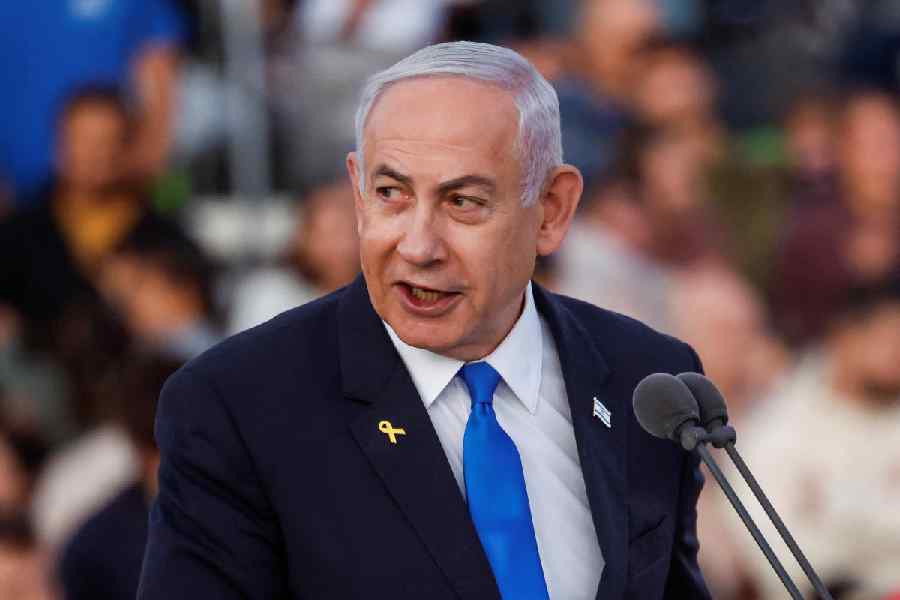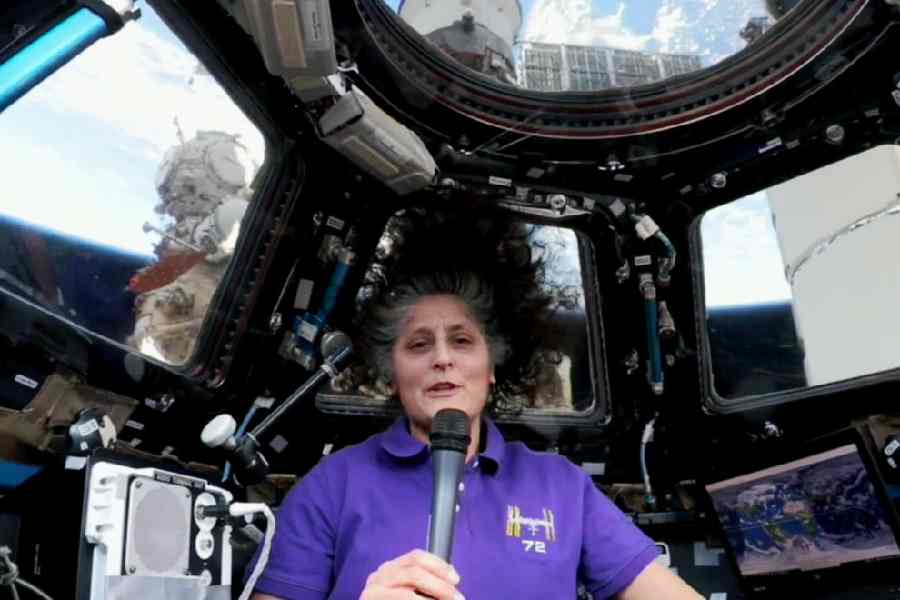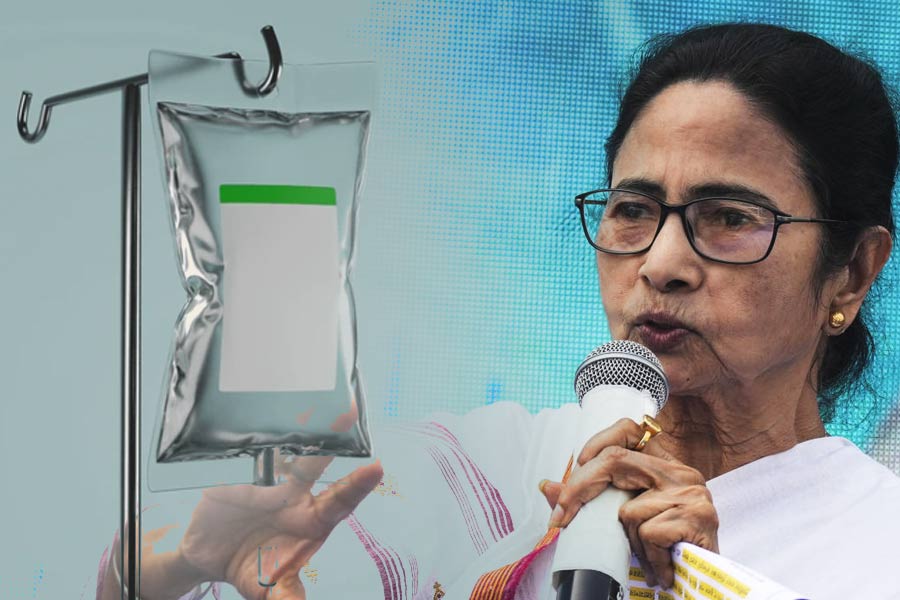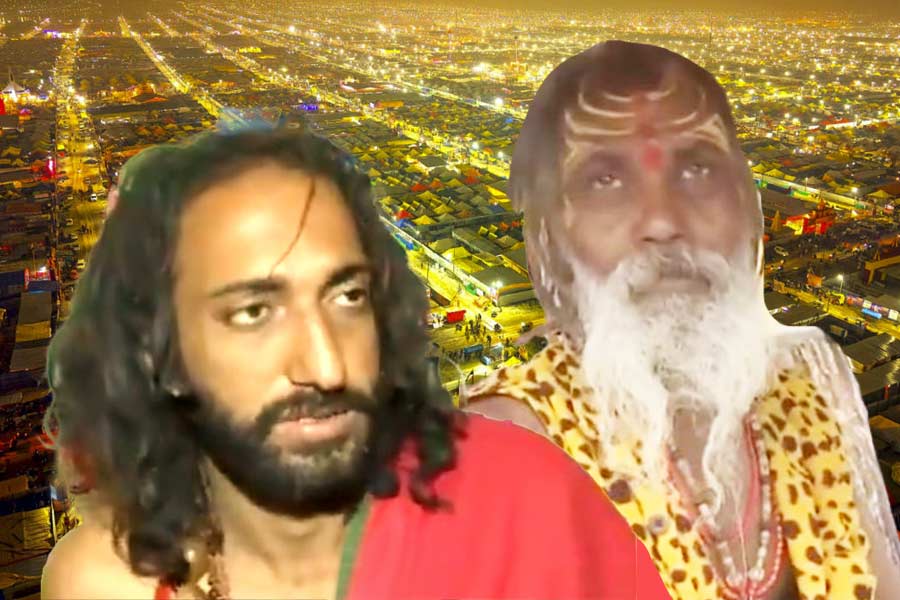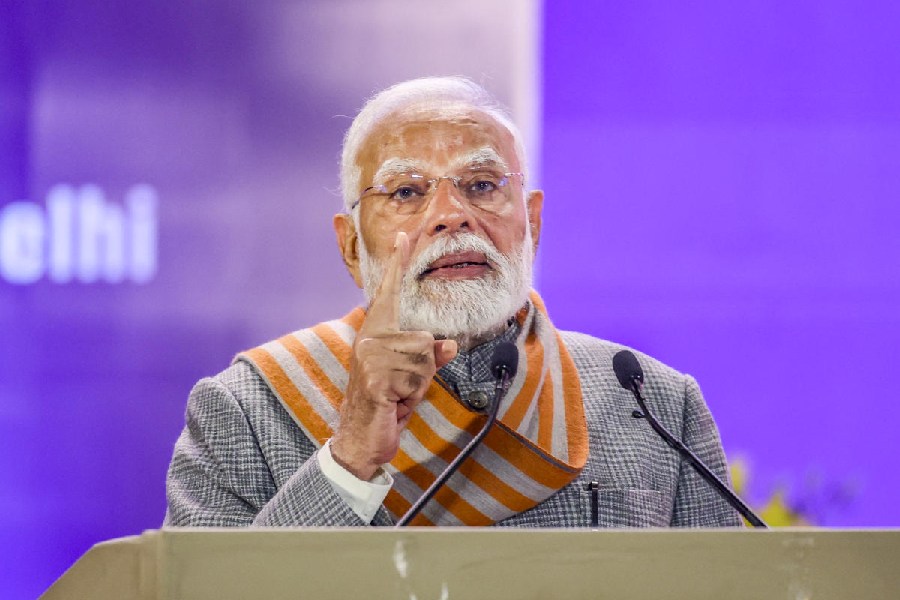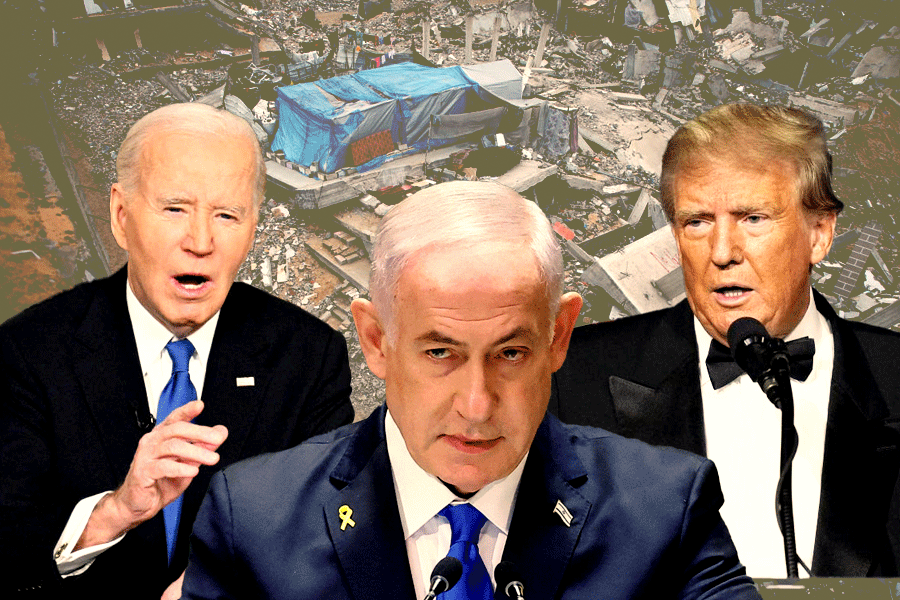For Ira Dubey, playing Muhammad Ali Jinnah’s sister Fatima Jinnah in Nikkhil Advani’s Freedom At Midnight, is a paradigm shift from the roles she has played on screen until now. Ira talked to us about her role, women from history and the web series streaming on Sony LIV.
Freedom At Midnight is unlike anything you did in the past. How did you land the role of Fatima Jinnah?
Ira Dubey: I met Nikkhil (Advani, creator) in 2022. I was called in because Madhu Bhojwani, one of the producers at Emmay Entertainment, had seen me in two of my plays – 9 Parts Of Desire, and Devika Rani, a period play.
I had met Nikkhil regarding another project I was trying to make in 2017. I had fallen in love with a book titled Mr and Mrs Jinnah. I took the rights and wanted to develop it into a show. I approached many people, including Mira Nair, as I was obsessed with the book. But this story was not easy to tell. Imagine me trying to make a show about the love story of Jinnah and his wife in India as we know it now. It was virtually impossible, so I couldn’t make it.
When we met, I learnt Nikkhil, like me, is a history buff. I had taken a project about Jinnah to him. Cut to four-five years later, I was meeting with him again regarding playing Jinnah’s sister. It came full circle for me. There was no doubt I wanted to be a part of the project. Fatima being a silver-haired, older lady made no difference to me. It was even more exciting to dig my teeth into. It was an interesting element of her characterisation. I think as an actor, you just have to transform.
What kind of discussions did you have with Nikkhil Advani about playing Fatima Jinnah?
Ira Dubey: Fatima is not in the Freedom At Midnight book. So, it was bold to put her into the show and express what she stood for. It was important to know that Fatima was a mirror to Jinnah. She was a bouncing board for him. Fatima also became the mother of the nation after her brother’s death. She did a lot for the women of Pakistan in education and healthcare. She was a qualified dentist. The desire for Pakistan was as important to her as it was for Jinnah.
However, women were not welcomed in the public arena, let alone share their political opinions publicly. Sarojini Naidu was a real anomaly. But that doesn’t mean that behind closed doors, women did not have political opinions. Fatima was a sounding board for Jinnah while he was navigating those difficult things during that time. He was alone. He couldn’t trust Liaqat Ali Khan and the other Muslim League members who came together around him.
We needed to give room to the one relationship in his life that became primary for him. Nikkhil and I were clear that this is really what she stood for. Fatima was a compassionate and resilient woman. She was strong but she was not a strategist. Her brother was a politician, strategist and lawyer. She was a humanitarian.
Her relationship with him was interesting because it was unheard of that a woman would devote her life to a sibling. She never married. She lived with him. They used to squabble; they used to spend all their time together. They were dependent on each other. It was interesting to explore what that relationship meant. Hopefully, you will see that even more in the second season.
Was there any scene or sequence dear to you that didn’t make it to the final cut?
Ira Dubey: If you notice, there are only three main women in the show – Edwina Mountbatten, Sarojini Naidu and Fatima Jinnah. I remember a beautiful scene between Edwina and Fatima. Fatima is in a women’s school supervising something and Edwina visits her, trying to convince her to change Jinnah’s mind. It was the only scene between two women in the show but for whatever reason they had to cut it.
For me, as an actor and as a woman, it is very important to represent women from history. Sometimes women standing next to the most important figures in history are ignored. I discovered two interesting things after our show was released. There was a Pakistani show in which three different actresses played Fatima. Now, they are making a web series on Fatima in Pakistan. Everybody is sitting up and taking notice of women who have sometimes been forgotten in history.
Apart from what is shown in Freedom At Midnight, which side of Fatima and Jinnah did you discover?
Ira Dubey: There is a lot of source material to look at when you think about their relationship. Fatima wrote the book, My Brother. She supervised the writing of Jinnah’s biography after his death. She used to write his speeches for him, almost like his political advisor. She was also his caregiver and emotional support system as you know he was dying (of tuberculosis) and those were the last couple of years of his life.
They had an understanding that was quite unlike many brothers and sisters. Their every meal and cup of tea was together. Fatima didn’t get along with Jinnah’s wife very well. It was funny because Fatima and Jinnah used to bicker like a couple. I remember a funny anecdote. Jinnah was a complete workaholic and obsessed with newspapers. He would collect newspapers and pore over them for hours. Fatima would come into the room and open the window and he would say, ‘I don’t want the window open. Please close the window.’ And 10 minutes later, she’d come back and open the window again. That’s the relationship they had.
Fatima had a lot of respect for Gandhi. Gandhi had the pulse of the people. Jinnah was an intellectual. However, he was not connected to the people till he began to fight for Pakistan, and she knew that. She always gave him the reality check. That cute scene when Jinnah calls Nehru, Peter Pan. Why did they talk about him in this way? It’s because she didn’t trust Nehru. They had their inside jokes about him.
How do you circumvent the pressure of playing a historical character?
Ira Dubey: You can’t satisfy everybody’s expectations. I think the most important thing is you basically have to create life. For me, the relationship with her brother and the interior world of Fatima, which was about a burning desire for Pakistan, were the two main things. I was lucky because I had Arif Zakaria (as Muhammad Ali Jinnah) working opposite me. He went very deep with Jinnah and it was great fun.
How much did the atmospherics (set, costumes, make-up) add to your performance?
Ira Dubey: Jinnah’s home became quite evocative and surreal to shoot at. You see that decisions were made behind closed doors in these big houses and office chambers. There’s a lot of tension in these rooms. You also see the repercussions of these decisions outside where millions are suffering. That paradox is quite crucial to this particular narrative.
You see Fatima mostly in the private spaces. She’s rarely seen outside. I think the house where we shot became very evocative. It was symbolic as you’ll see that, ultimately, Fatima and Jinnah will leave the house. The reality of wanting the birth of a new nation for your people is that your home is no longer your home then. It’s explored very sensitively in Season 2.
I was playing a historical character, and unlike Jinnah, Gandhi or Nehru, there’s little written about Fatima. For me, that was scary but at the same time liberating because then you can really use your imagination to create something. On camera, what everyone wants to watch is life, not just dialogue.
I began to work right from the get-go in 2022, reading books and working with a fabulous coach, Thierry Bleu. I could have gone very deep into the dialect and maybe had an Urdu touch to her but I didn’t want to because she was an English-educated woman, and Fatima and Jinnah were very anglicised.
She was an elegant, regal lady but never wore makeup. For the physicality, all we did was age her face, subtly. We gave her a beautiful wig, beautiful clothes, and elegant jewellery. She wasn’t into vanity at all. That was a wonderful thing to use for her character.
How long did it take you to get ready every day on set as Fatima Jinnah?
Ira Dubey: The hair would take the longest. You have to be careful how you put on a wig. It has to look natural. At least five or six trials were done to achieve the right look for each character. I was very keen to try a nose. Arif looked quite similar to Jinnah but I am not a replica of Fatima. We tried to figure out something with the jaw to make the face leaner. We also tried a prosthetic nose. But we finally decided not to go that route. It was more interesting to try and capture her essence.
Did you take anything with you as a souvenir from the sets?
Ira Dubey: Arif and I wanted to steal stuff from our house but we were not allowed to. I think he loved the stationery and the typewriter. I loved a couple of objects from his desk, but I loved my wig the most. If I had to keep anything of Fatima’s, I’d keep the wig.
What did your mother Lillette Dubey say about Freedom At Midnight?
Ira Dubey: My mother acted in Nikkhil’s first film, Kal Ho Naa Ho. She thought it was gripping and very well-made. She thought I was very powerful and had a lot of poise. She’s not an effusive person who compliments everything she sees. She’s quite discerning, even with me. So, if she says she liked it, she means it.
After this, what kind of roles do you want to play more?
Ira Dubey: I’m an English-speaking, South Bombay-educated woman, and I look a certain way but that doesn’t mean I can’t play someone from a small town or a rural context. This is my conditioning and upbringing. It has nothing to do with my talent as an actor.
I would love to get into the spy thriller action space because no one’s given me anything in that space. I’d also love to do comedy. A lot of my peers tell me that I have a knack for comedy. But again, it’s also what people see. People have always considered me or perceived me as a dramatic actress. So, I think you have to try breaking that mould yourself. I’m also starting to produce. I'm also starting to write my material. Eventually, maybe we’ll have to write things for ourselves.

